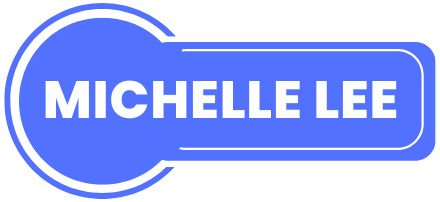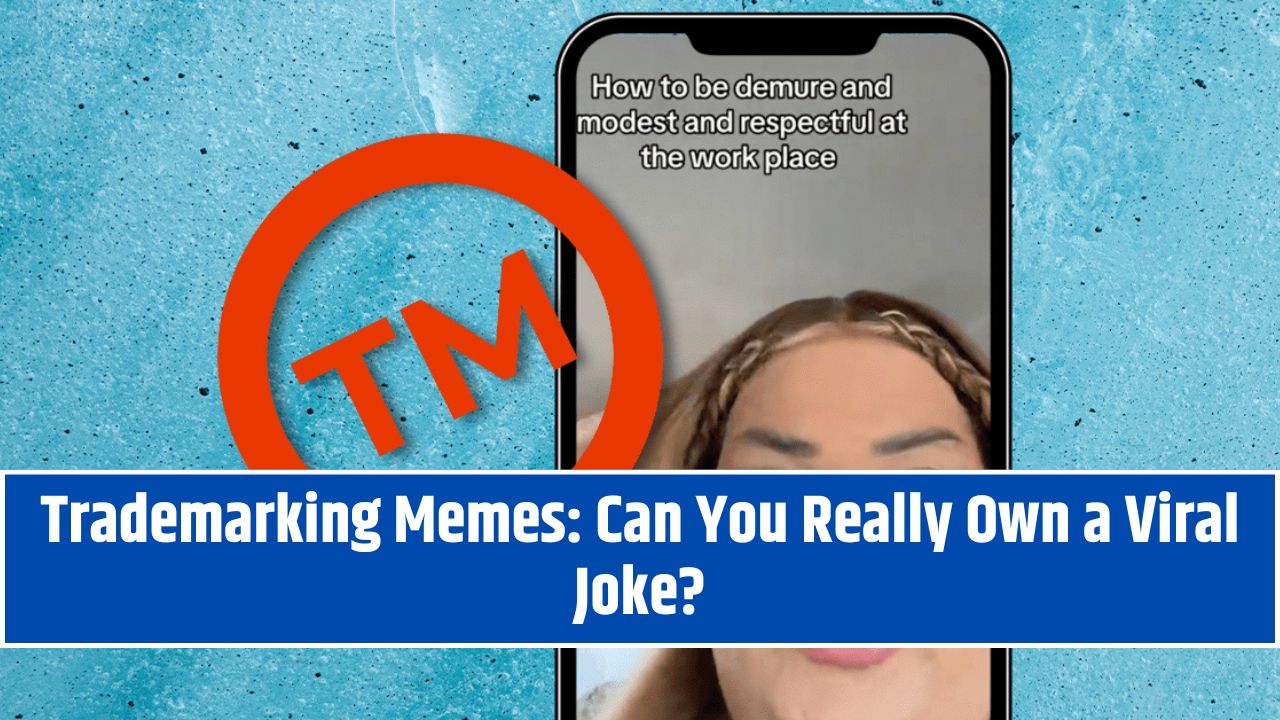Let’s get something out of the way real quick:
Memes aren’t just goofy pictures with Impact font anymore.
They’re culture.
They’re marketing tools.
They’re how Gen Z communicates everything from love to late-stage capitalism.
And let’s be honest—some memes carry more influence than Super Bowl ads.
So… naturally, the question arises:
“Can I own a meme? Like legally? Like trademark it?”
Short answer? Kinda.
Long answer? Buckle up. It’s a rollercoaster of copyright law, cultural chaos, and a dash of internet weirdness.
FIRST, WHAT IS A MEME, LEGALLY SPEAKING?
Not to get all Professor Internet on you, but from a legal standpoint, a meme is a form of content—typically an image, phrase, or combination—that:
- Spreads rapidly,
- Evolves through remixing, and
- Is usually rooted in satire, parody, or cultural commentary.
Legally, it’s considered expression, and depending on how it was made (original vs. derivative), it might be protected under copyright law, trademark law, or—get this—nothing at all.
COPYRIGHT VS. TRADEMARK—LET’S CLEAR THAT UP
Copyright = protects creative works (like a photo, illustration, video, song, or written post).
Trademark = protects brand identifiers (like a logo, slogan, or brand name) that distinguish your business.
So let’s say you invent a brand new image-meme format—original artwork + your own caption.
You’d probably copyright it.
But if the meme becomes so associated with your business that it becomes part of your brand identity, then you might look into trademarking it.
EXAMPLES OF MEMES THAT WENT LEGAL
1. Grumpy Cat™ – The OG of Meme Monetization
Yep. That cranky feline face?
Trademarked.
The owners of Grumpy Cat (real name: Tardar Sauce—no joke) filed multiple trademarks for the cat’s likeness, name, and brand identity. They licensed everything from coffee drinks to books.
When another company tried to push a Grumpy Cat coffee line outside the terms of their agreement, the meme moguls won a $710,000 lawsuit.
Lesson: If your meme is the brand, it can absolutely be trademarked and protected.
2. Success Kid
That adorable toddler with the fist-pump of victory?
He’s been featured in countless memes—and his parents own the original photo. They’ve used it for charity campaigns, licensed it to Coca-Cola, and stopped political campaigns from using it without permission.
Again, this falls more under copyright than trademark—but still legally protected.
Lesson: If you created the image? You hold the power.
3. Pepe the Frog… Gone Rogue
Originally created by artist Matt Furie as part of a comic series, Pepe the Frog got co-opted into all sorts of internet nastiness, including hate group memes.
Furie fought back—legally. He’s gone after alt-right and commercial misusers, suing for copyright infringement and trying to reclaim the image’s original, more chill identity.
Lesson: Memes may feel like public property—but original creators still have rights.
SO, CAN YOU TRADEMARK A VIRAL JOKE?
Let’s say you came up with a phrase like:
“I’m not procrastinating, I’m time-traveling creatively.”
It goes viral. People put it on T-shirts, mugs, maybe even tattoos (wild, but the internet is wild).
Can you trademark it?
Yes… IF:
- It’s not already commonly used
- You plan to use it in commerce (i.e. selling stuff)
- It’s not too generic or descriptive (sorry, “Hot Girl Summer” was too broad to trademark for some uses)
In 2019, Megan Thee Stallion did successfully file for “Hot Girl Summer” as a trademark—for music and merch, not for every casual use.
Pro Tip: A meme or phrase must be tied to a commercial product or service to qualify for trademark protection.
OKAY, BUT WHAT IF I MAKE A MEME? CAN I OWN IT?
Here’s a quick breakdown:
| Meme Type | Can You Protect It? | How |
|---|---|---|
| Original image + caption | Yes | Copyright or Trademark (if tied to your brand) |
| Remix of someone else’s image | No (unless transformed significantly) | May fall under fair use |
| Meme text (e.g. catchphrase) | Maybe | If not too generic & tied to commercial use |
| Viral format you created | Maybe | Harder to claim if it spreads fast |
MEMES MOVE FAST. LEGAL SYSTEMS? NOT SO MUCH.
Let’s be real: The internet moves at warp speed.
Memes evolve in hours, while legal processes take months (if not years).
By the time you file for trademark, the meme might already be dead and buried in TikTok’s graveyard of trends.
So most creators don’t bother trying to lock down viral jokes unless:
- The meme is tied to a business (merch, content brand, etc.)
- The IP is super valuable (Grumpy Cat, again)
- Someone’s misusing it for profit or grossness
FAIR USE, PARODY, AND THE WILD WEST OF THE INTERNET
Here’s where it gets legally spicy.
Parody and satire are often protected under fair use, especially in the U.S.
That’s why you can meme a politician or remix a celeb photo with snarky text and not get sued into oblivion (most of the time).
But commercial use = whole different game.
Once someone makes money off a meme you created? Now you’ve got legal teeth.
Rule of thumb: If it’s just for the LOLs, you’re probably fine. If it’s for the $$, lawyer up.
BRANDS & MEMES: WHEN YOU CROSS THE LINE
Ever seen a brand use a meme format that was clearly created by someone else? Happens all the time. And while many creators roll their eyes and move on, some go full legal-hawk.
Brands beware:
- Always credit where possible
- Ask for permission when it’s not your image
- Avoid building entire campaigns around someone else’s meme
Otherwise, you risk being the brand that gets ratio’d and sued. Not a cute combo.
TL;DR – CAN YOU TRADEMARK A MEME?
Yes, if:
- You created it
- It’s tied to your commercial brand
- It’s unique and not too generic
No, if:
- It’s someone else’s content
- It’s a remix of public work without transformation
- It’s already widely used without ownership
Maybe, if:
- It’s a phrase going viral
- You plan to put it on products
- You file the right way and fast
FINAL THOUGHT: OWN THE CREATION, NOT JUST THE VIRALITY
Memes are messy, wild, and beautifully chaotic.
Trying to “own” one is like trying to leash a hurricane.
But if you’re smart about it—if you treat your content like IP, document your creations, and tie them to a legit business—you can protect what’s yours and maybe even cash in on internet culture.
Just don’t be the person who trademarks a joke and sues someone for using it in a tweet. That’s not power. That’s petty.




